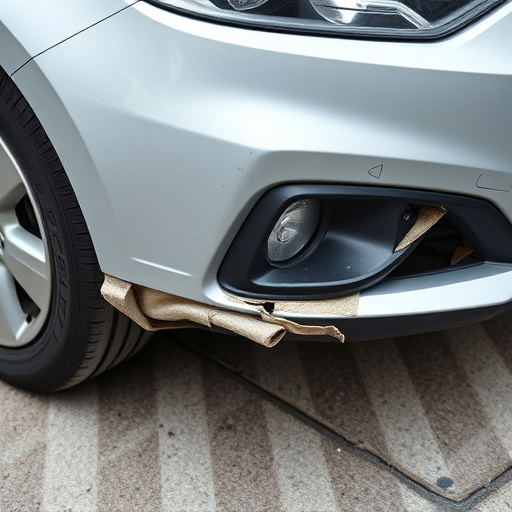Healthcare facilities, like hospitals, produce diverse hazardous waste streams requiring stringent hazardous waste management protocols to protect patients, staff, communities, and the environment from potential risks. They employ specialized techniques throughout the lifecycle of hazardous substances, adhering to strict guidelines, decontamination methods, and secure containment systems to minimize water/soil contamination, air pollution, and exposure risks. Effective hazardous waste management is crucial for modern healthcare, aligning with best practices from collision repair shops handling toxic materials, fostering a culture of safety and responsibility.
Hospitals generate significant amounts of hazardous waste, from pharmaceutical residues to contaminated medical equipment. Effective hazardous waste management is not just a regulatory requirement but a critical component of patient safety and environmental protection. This article explores the intricacies of hazardous waste management in healthcare settings, highlighting the importance of strict protocols and their role in mitigating risks associated with improper disposal methods. We delve into strategies that ensure safe handling, treatment, and final disposition of hazardous materials.
- Understanding Hazardous Waste in Healthcare Settings
- The Importance of Strict Protocols for Safe Disposal
- Effective Management: A Key to Patient Safety and Environmental Protection
Understanding Hazardous Waste in Healthcare Settings

Healthcare facilities, including hospitals, deal with a wide range of materials that can be classified as hazardous waste. This includes everything from expired medications and contaminated supplies to biohazardous substances used in laboratory settings. Understanding hazardous waste in healthcare settings is crucial for maintaining safe environments for patients, staff, and the community at large. Proper handling, storage, and disposal of these wastes are essential to prevent environmental contamination and public health risks.
Hospitals rely on strict hazardous waste management protocols to ensure compliance with regulations and minimize exposure to potentially dangerous materials. Similar to how collision repair shops handle auto bodywork and car restoration, healthcare facilities must employ specialized techniques to manage hazardous substances throughout their lifecycle. This involves proper segregation, labeling, packaging, and transportation of wastes to authorized treatment and disposal facilities, thus preventing accidental releases or environmental harm.
The Importance of Strict Protocols for Safe Disposal

Hospitals generate a significant amount of hazardous waste, from contaminated medical supplies to expired medications and biological materials. Strict protocols for safe disposal are paramount to protect both public health and the environment. Neglecting proper hazardous waste management can lead to severe consequences, including water and soil contamination, air pollution, and even exposure risks for healthcare workers and surrounding communities.
Stringent guidelines ensure that hospitals follow best practices for identifying, classifying, storing, and disposing of hazardous materials appropriately. This includes employing specialized techniques for decontamination, utilizing secure containment systems, and adhering to local, state, and federal regulations. By prioritizing hazardous waste management, hospitals not only mitigate environmental harm but also foster a culture of safety and responsibility, reflecting their commitment to patient care and well-being, even in the disposal of potentially dangerous materials, mirroring best practices from auto body shop operations that handle toxic substances with meticulous care.
Effective Management: A Key to Patient Safety and Environmental Protection

Effective hazardous waste management is a cornerstone of modern healthcare, serving as a vital safety net for patients and the environment alike. Hospitals generate a significant volume of potentially dangerous materials, from expired medications to contaminated sharps and chemical solutions used in lab tests. Improper disposal or handling of these hazardous substances can lead to severe health risks for staff, visitors, and nearby communities, as well as cause significant environmental damage.
Strict management protocols ensure that hospitals adhere to regulatory standards set by environmental agencies. This involves proper segregation, packaging, labeling, and storage of hazardous waste, as well as adherence to guidelines on disposal methods. By implementing these practices, hospitals can mitigate risks associated with auto body services and automotive collision repair facilities, which often deal with toxic materials from damaged vehicles. Ultimately, effective hazardous waste management is a key component in maintaining a safe and sustainable healthcare environment.
Hospitals’ reliance on strict hazardous waste management protocols is not just a regulatory requirement, but a vital strategy for ensuring patient safety and safeguarding the environment. By implementing effective hazard waste management practices, healthcare facilities can mitigate risks associated with exposure to toxic substances, prevent environmental contamination, and uphold their ethical responsibility to both patients and the planet. This comprehensive approach ensures that medical advancements are achieved sustainably, prioritizing the well-being of all stakeholders.














